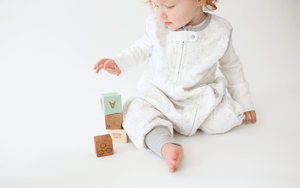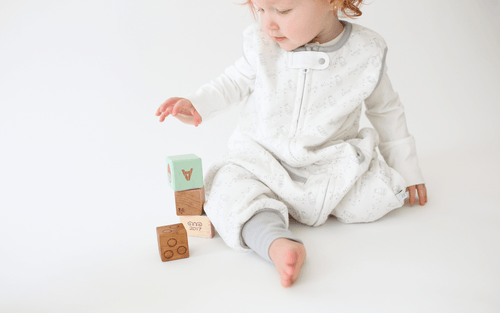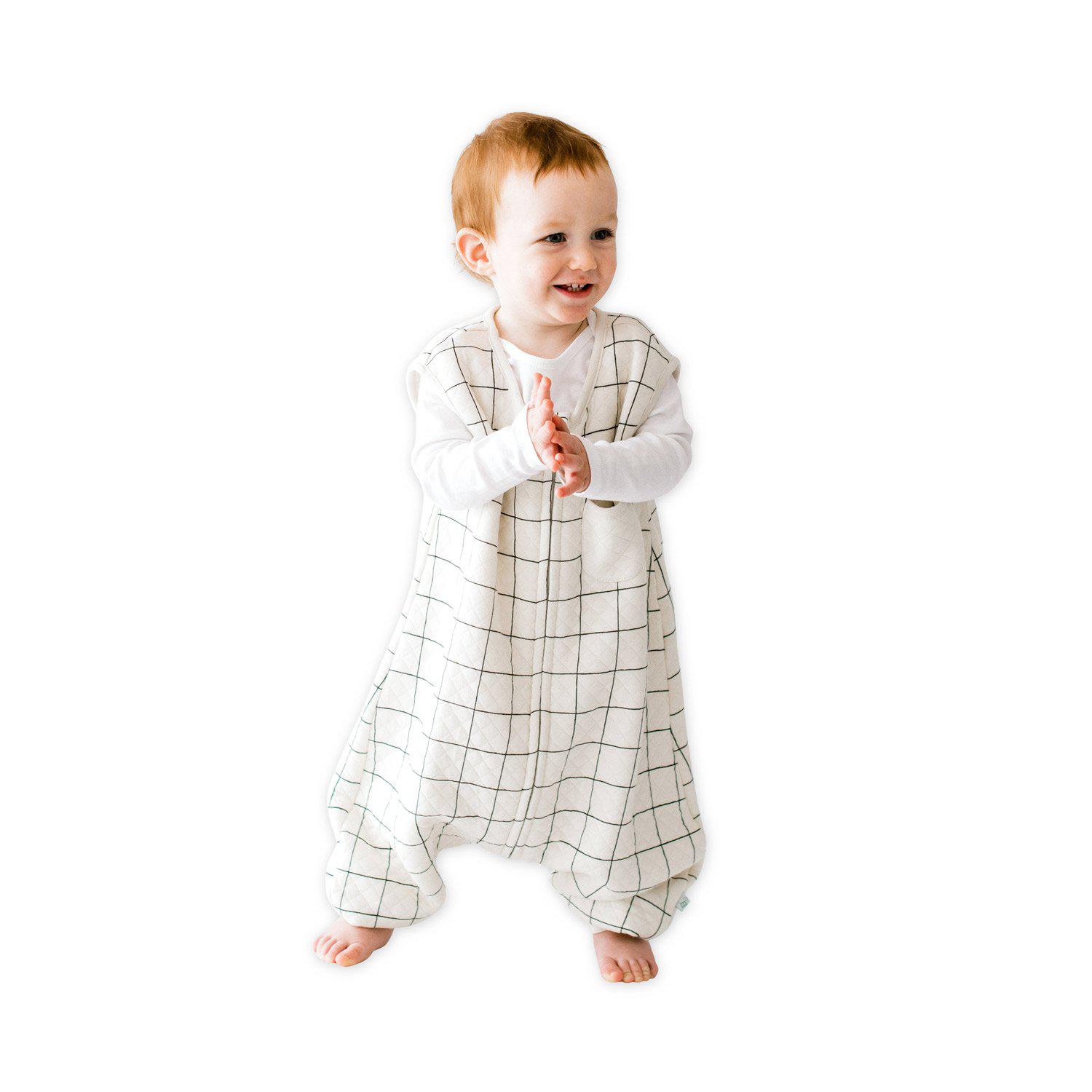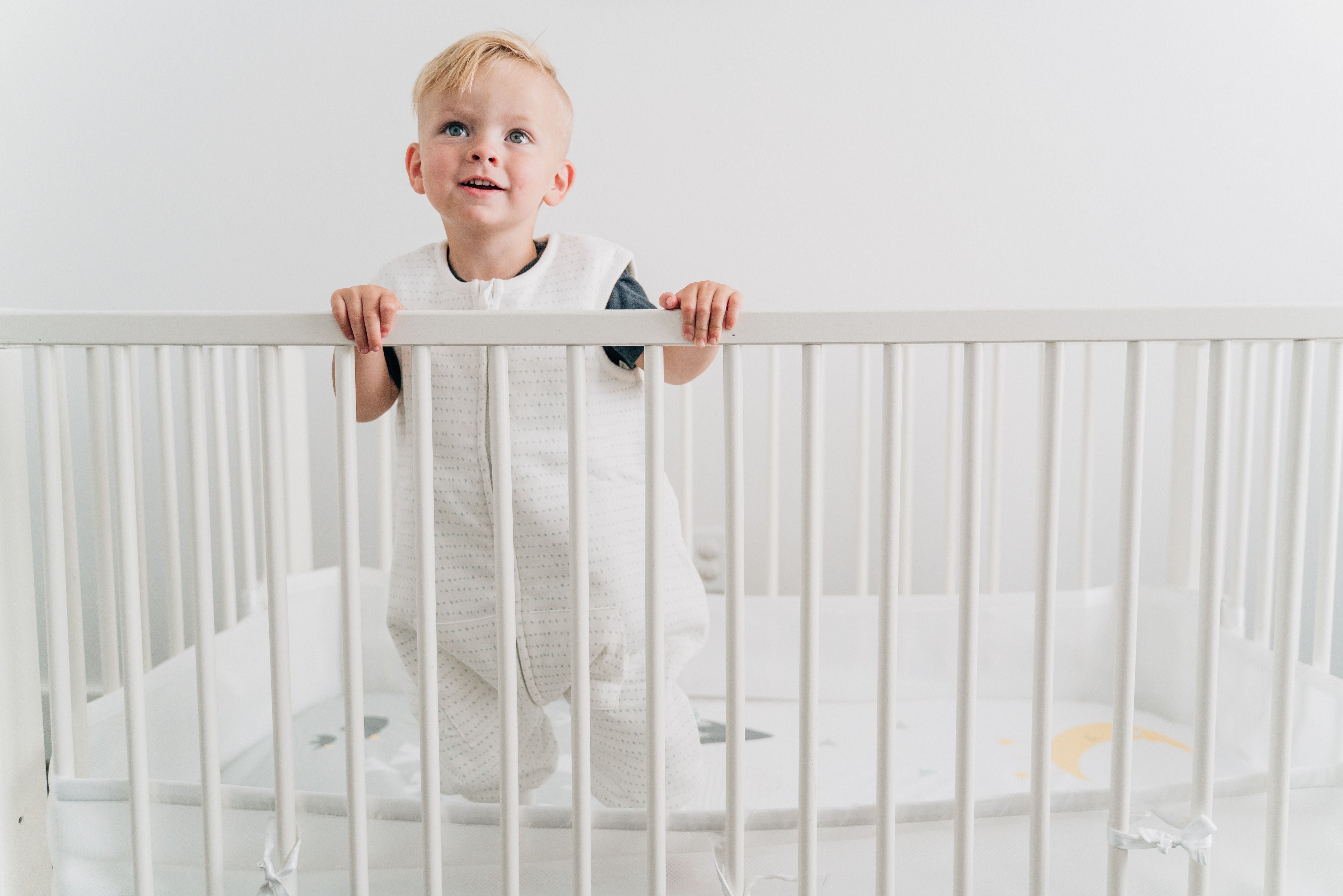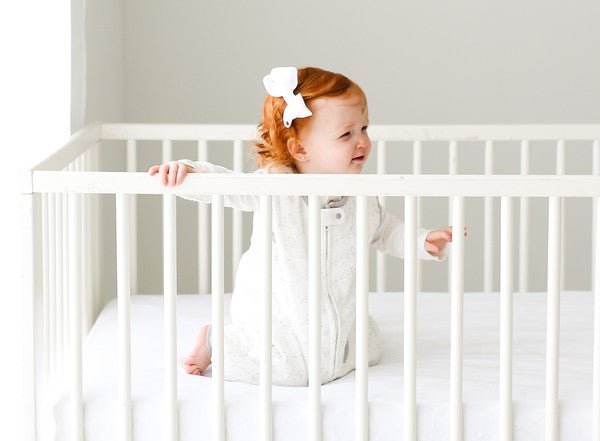Why is my child waking up too early?
Guest contribution written by: Rosalee Lahaie Hera founder of Baby Sleep Love

When should my little one wake up for the day?

Let’s review developmentally normal morning wake-up times. Just as later bedtimes are natural for newborn babies, so too are later morning wake-up times.
As a baby becomes older and begins to sleep more regularly, a natural morning wake-up time settles between 6:30-7:30 a.m. If they’re getting an adequate amount of good quality nighttime sleep, waking up in the 6 o’clock hour is fair game for children.
So, when we’re referring to early morning wakings, we are usually referring to when a baby wakes up at 5 a.m. or earlier.
I recommend an ideal morning wake-up time of no earlier than 6:30 a.m. Before then, we try to avoid food (if age appropriate), light, and conversation, which signal that it’s time to get up. After, we say a cheerful “good morning!”, turn on the lights and get on with our day. This helps to set your little one’s internal clock to regularly wake up at this time.
Tip #1: Tune up your sleep environment

A pitch-black room is key to improving early morning wakings. Humans sleep best in “cave like conditions”. If you’ve got even the slightest beams of natural light coming into your child’s room in the morning, the melatonin (sleep hormone) in their system can plummet, causing them to rise for the day. Invest in blackout blinds and curtains and use blackout tape or Bristol board to block out the perimeter of light that may leak through regardless.
If your little one has expressed fear of the dark, you can add a red nightlight. Red is a color on the spectrum that doesn’t disrupt the production of melatonin to the same extent that blue light does. If you use a toddler clock, ensure that it doesn’t force a blue nightlight on.
You also want the room to be cool enough in the early morning (no warmer than 68-70F/20-21C). Try to cool the room without opening the windows, avoiding the noisy sounds of bird calls in the 5 o’clock hour.
Using continuous pink noise (like the sound of rain) can also be helpful. It encourages the connection of sleep-wake cycles during the very light periods of sleep that can occur in the early morning.
If there is traffic outside your little one’s room in the early morning (e.g., someone getting ready for work), consider using carpeting inside and/or outside of the room to absorb noise.
Tip #2: Ensure an age-appropriate sleep schedule

If your baby wakes up too early in the morning, it’s likely that their sleep schedule needs some work. First, you want to ensure they aren’t going to bed overtired. An overtired child will find it difficult to sustain sleep throughout the entire night until morning.
You will also want to avoid naps that are starting too early, lasting too long, or ending too late in the day. All these situations can decrease the homeostatic sleep pressure or drive to sleep at the end of the day, which makes it unlikely they’ll sleep until a reasonable time in the morning.
As an example, on a 1-nap schedule, your toddler’s nap should begin no earlier than 12:30 p.m. At first, they may be able to nap for 2+ hours and continue to sleep well at night. As they get older, you may need to decrease their nap and/or end it by no later than 2:30-3 p.m. to maintain a reasonable morning wake-up time.
Tip #3: Avoid reinforcing the wake-up

If your little one is unable to settle themselves to sleep at bedtime, when the homeostatic sleep pressure is relatively high, it may be difficult for them to stay asleep during the light periods of sleep that occur in the early morning.
So, if your little one cannot yet fall asleep independently and you’re committed to improving their early wakings, then encouraging them to do so can greatly help. We also want to avoid irresistible rewards for waking up too early.
For example, allowing your little one to watch movies with you in bed or heading to the playground right away. This sends a message that it’s perfectly okay to keep waking up at 5 a.m., setting their internal clock to keep waking at that time. Instead, you want melatonin to keep running high until at least 6:30 a.m.
If you’re already on the path toward independent sleep and using a specific sleep coaching method at bedtime, then treat the early waking as any other overnight waking and apply the same method. If you’re not yet on the path toward independent sleep (totally okay!), then you may want to simply stay with or cuddle your little one in their own dark, cool space until it’s time to get up.
Eventually, their internal clock will reset to a later time. For a toddler clock to work effectively, you want to set it at your toddler’s current morning wake-up time at first (yes, even if that’s 5:30 a.m.). You want to give them some time to feel the success of waiting for the sun to come up. Then, you can move it later in 5-minute increments every couple of days until you reach your desired morning wake-up time.
Applying these concepts consistently and simultaneously can really help you make headway with your baby or toddler waking up too early. All of this also assumes that your little one is receiving adequate nutrition and isn’t fighting off a viral infection that is making them feel uncomfortable or in pain. Both issues need addressing before applying these tips to your sleep circumstances.
There is no reason to rush your child if they are not ready to give up their sleep sacks, as they serve as a great sleep aid, as they often help our little ones settle quickly for sleep when used consistently. I often recommend dropping the sleep sack when you make the transition to a toddler bed, which I recommend doing as close to 3 years old as possible.
